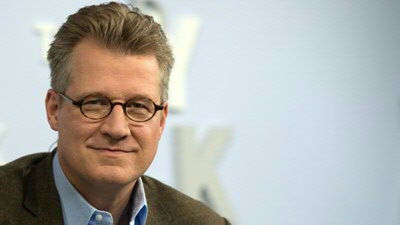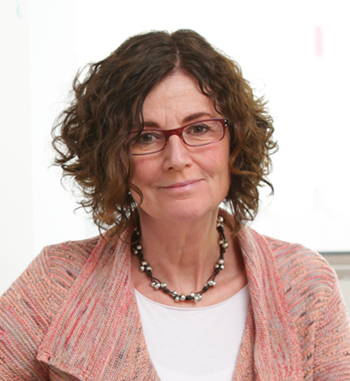UG awards honorary doctorates to Philipp Blom and Titia de Lange
The University of Groningen (UG) will be awarding honorary doctorates to Prof. Titia de Lange and Dr Philipp Blom during its anniversary week in June 2019. Historian Blom will be awarded an honorary doctorate at the suggestion of Prof. Ann-Sophie Lehmann of the Faculty of Arts, whereas cell biologist De Lange was nominated by Prof. Gerald de Haan of the Faculty of Medical Sciences. Rector Magnificus Elmer Sterken: ‘These two honorary doctorates will be awarded to academics not only to mark the 405th anniversary of our University, but also to honour teaching and research driven by curiosity.’
Philipp Blom
Dr Philipp Blom (Hamburg, 1970) has a PhD. in History and has proven more than capable of making academic insights accessible to a broad audience. The son of a German father and a Dutch mother, Blom grew up in Detmold. He studied Philosophy and Jewish Studies at the University of Vienna until 1992 and went on to study at Oxford University, where he was awarded the title of Doctor of Philosophy in 1997 with a thesis on Nietzsche. He subsequently worked as a translator, writer, editor and freelance journalist. In 2001 he moved to Paris, and in 2007 to Vienna.

Blom’s German-Dutch background plays an important role in his most recent novel Bei Sturm am Meer, elements of which will undoubtedly ring familiar to many German academics who work in the Netherlands. Recent international climate politics has shed new light on his historical work Die Welt aus den Angeln on the Little Ice Age. Blom’s profile of a critical, international ‘public intellectual’ ties in well with the values of the UG. In 2014 he held the Van der Leeuw lecture in Groningen together with Geert Mak.
Titia de Lange
Prof. Titia De Lange (Rotterdam, 1955) is director of the Anderson Center for Cancer Research and head of the Laboratory of Cell Biology and Genetics at Rockefeller University. She studied at the University of Amsterdam and gained her PhD at the Netherlands Cancer Institute in Amsterdam, studying under Prof. Piet Borst.

De Lange has conducted extraordinarily groundbreaking scientific work in the field of the biology of ageing. She showed that DNA molecules form T-shaped loops at the end of chromosomes, thanks to which the cell machinery does not mistake them for defects that must be fixed quickly. De Lange was the first to suggest that telomeres were also shielded from the cell machinery in other ways – a suggestion that has turned out to be correct. De Lange played an important role in identifying the complex of molecules that protects the telomeres; a shield that she has named the ‘shelterin complex’ . Telomeres and their protection play a major role in healthy and diseased cells. De Lange’s important, original discoveries will therefore have great implications for healthcare. They have resulted in fundamental insights into how cells are able to transfer their genome to daughter cells after each cell division without damaging it. Research conducted by UG scientists, for example at Eriba, dovetails closely with this. After all, in order to prevent premature ageing of cells and organisms, it is essential to maintain the stability of the genome.
Ceremony
The UG honorary doctorates will be awarded during an academic ceremony in the Martinikerk on the afternoon of Friday 14 June 2019, in the presence of the boards of the Municipality of Groningen, the Province of Groningen, Hanze University of Applied Sciences Groningen and the UMCG, as well as various other dignitaries. Ample seats will also be made available for alumni, students and inhabitants of the city.
Honorary doctorate
An honorary doctorate (Latin: doctoratus honoris causa) is a doctorate that is awarded to a person who has made an exceptional contribution to academia without necessarily having written a PhD thesis. Honorary doctorates can also be awarded on the basis of non-academic achievements, for example in society or politics. An example is the honorary doctorate awarded by the University of Groningen to former Secretary-General of the United Nations Ban Ki-moon in October 2018. At the UG, the awarding of an honorary doctorate is marked by the donning of the traditional burgundy red ‘kappa’ (cape).
More news
-
26 February 2026
Vici grant for Professor of Neurology Marieke Wermer
-
14 February 2026
Tumor gone, but where are the words?
-
19 January 2026
Digitization can leave disadvantaged citizens in the lurch
